
A native of New Mexico, Liz Adair now lives in northwest Washington with Derrill, her husband of 46 years. They are parents of seven children and eighteen grandchildren. A late bloomer, Liz published her first Spider Latham Mysteries with Deseret Book just as AARP started sending her mail. Lucy Shook’s Letters from Afghanistan and The Mist of Quarry Harbor followed soon after. Liz’s latest book, based on family history and entitled Counting the Cost, was published last year. Liz works in construction management. Counting the Cost has been nominated for a Whitney Award. Congratulations, Liz!




Liz's books are full of personal and family history. In fact, she blogs about using family history in fiction on www.familywriters.blogspot.com She also offers presentations on Using Family History in Fiction at family history conferences and writers conferences.
Liz is a beloved author and her books are wonderful. If you haven't read any, I hope you'll give them a try. If you visit her blog you'll find excerpts from each of her books.
Here's my interview with this charming lady.
M.B.: When did you first know you wanted to be an author?
Liz: I’ve always been a scrawler, but I first had the thought, “I want to be a writer” when I was about twenty. However, at that time I had no idea all that it entailed. I was middle aged when I began writing in earnest.
M.B.: What was the pathway like for you to get your first book published?
Liz: It was about ten years wide and three books long.
M.B.: Were you ever discouraged along the way? If so, how did you deal with it?
Liz: There were times when I was crushed—every time I opened an envelope and found a rejection slip—but I don’t know that I was ever discouraged.
M.B.: What is your writing schedule like?
Liz: You’ve seen that object lesson, haven’t you, where there’s a bowl full of apples, and you then put in some grapes, which fill in between the apples, and then you pour a quart of rice over the already-full bowl of fruit, and the rice packs into the crannies and crevices? That’s my writing time. I still work, I live in the same town as nine of my eighteen grandchildren, I’m choir director and work with the Young Women in Church. So I pack my writing in around all my other obligations. There is no schedule, it’s just that I’d rather be writing, so I fit it in wherever I can.
M.B.: Where do your ideas come from? How do you know the idea is
good enough to write a book about it?
Liz: I think any idea is good enough to write about if it’s handled well. That’s the adventure of reading, to see the multitude of ideas that are turned into well-told stories.
Where do I get my ideas? From family history, from personal experience, from the newspaper, from standing in line at the grocery store. If you people-watch very long, you’ll see conflict playing out all around you. Conflict is what a story must have. I think a good writer can watch a subtle exchange about whether or not to buy salmon or hamburger for dinner and build a whole scene, if not a whole plot, out of it.
M.B.: What words of advice do you have for other writers who desire to
have their manuscripts become books in print?
Liz: Find a writing group or a writing partner who will read your manuscript and critique it honestly. Someone who will read what you’ve written as an unpublished writer is golden. Someone who has the capacity to help you be a better writer is priceless.
M.B.: What is your process of brainstorming a story? Do you just sit
down and write, waiting to see what happens next? Or do you outline
first?
Liz: I first sketch out a skeleton—a very rough beginning, middle, end, with the conflict identified. Then I start fleshing it out, making a more detailed, yet still sketchy, outline of what needs to happen to get all the elements of the story in. Then I go through and write a detailed half- or three-quarter-page summary of each chapter. I find that, if I do that, when I come to the time when I’m actually writing and I get to chapter twenty of twenty-five chapters, I can go on because I have a detailed road map and I know the wretched thing is going to end soon.
M.B.: Do you ever experience a snag in a story, a form of writer's
block? If so, how do you deal with it?
Liz: I’ve never had writer’s block (knock wood). I’ve had snags, but I find if I let them alone and work on something else, the answer will come to me. Usually in the shower.
M.B.: Do you need absolute quiet to write? Do you listen to music when
you are writing?
Liz: I like quiet, but as mother of seven, I’ve learned to tune out almost anything. I don’t listen to music, except I did when I was writing Counting the Cost. Early in his career, Lyle Lovett wrote two songs that were catalysts in my channeling that book. One was called “Walk Through the Bottomland,” about a rodeo cowboy who fell in love with a lady from New Jersey. The other has this line in it: If I were the man you wanted, I would not be the man that I am. That kind of sums up the book.
M.B.: What kinds of inspiration do you use during your story creation periods?
Liz: Faith. To me, sitting down with a pencil and a notebook—which is how I always do my initial blocking—is an act of faith. The same way sitting down at the computer and beginning to string words together is an act of faith. I really believe that faith precedes the miracle of creation in an author’s life. After that comes the hard work of rewriting.
M.B.: Who has made the greatest difference for you as a writer?
Liz: Probably my husband, because he has always taken me seriously and believed in me.
M.B.: Do you use a critique group during the writing process? Why or why not?
Liz: I have used my ANWA (American Night Writers Association) chapter (my writers group) as an informal critique group, but I’m just now joining with a group of talented writers to form a critique group.
My feeling is that, as an author grows, she goes through several phases. The first one is the discovery that she needs to write to be whole. The next phase is when she begins to share her writing with a select few. The third phase is when she gets brave enough to send it out for consideration by a publisher—and usually finds that it’s not good enough yet. What she needs is to learn the craft. Using the word ‘hone’ is very apt, because a writer has to come up against the rough edge of criticism in order to be a better writer. So, the next phase is when the writer finally discovers that there are things she can learn and begins to practice those skills. The last phase, when she is finally a pro, is when she has a critique group and says, “Don’t pull any punches. Be harsh, because I want this to be the best it can be.”
That’s where I am now. I’m way excited about it.
M.B.: Which of your books is your favorite, and why?
Liz: I have two: Counting the Cost is a favorite because, first, it’s about my family history, and second, because it was a gift. It came to me whole. I didn’t have to block and flesh out and write outlines. It just flowed out my fingers.
Lucy Shook’s Letters from Afghanistan is the book I’m proudest of. I didn’t write it. My daughters and I edited my mother’s letters that she wrote when she lived and worked in Afghanistan in the mid-1960’s. She lived in Helmand Provence, now a Taliban stronghold, and she had fifteen Afghan men who worked for her as she ran a small hotel and restaurant for USAID. A gifted writer, her letters, sometimes poignant, sometimes hilarious, are glimpses into the lives of the Afghan peasants. One hundred per cent of the sales of these books go to help women in developing countries through a microcredit program administered by SWAN (Serving Women Across Nations).
(here’s a link for that: www.swanforhumanity.org
M.B.: Any final words you would like to share?
Liz: I’d like to invite everyone to visit my blog LIZ SEZ at www.sezlizadair.blogspot.com I do some philosophizing, share recipes, interview authors, and throw out a parenting tip every now and then. When you visit my blog, you might want to click on the link to the book trailer for Counting the Cost.
M.B.: Where can our readers go to find your books and order them?
Liz: I have links on the book images on my blog and on my web site at www.lizadair.net. Otherwise, Counting the Cost and the Spider Latham Mystery Series can be purchased at my publisher’s book store (Here’s a link: http://inglestonepublishing.com/index.php?cmd=display&pg=bookstore ) or at Amazon
(here’s the link to the page it’s on:
http://www.amazon.com/gp/product/0977881466/ref=s9_simi_gw_p14_i1?pf_rd_m=ATVPDKIKX0DER&pf_rd_s=center-2&pf_rd_r=03T8ZVSHACZN75RKDZ4M&pf_rd_t=101&pf_rd_p=470938631&pf_rd_i=507846 )
The Mist of Quarry Harbor is at Deseret Book. (here’s the link for the page it’s on:
http://deseretbook.com/item/4736270/The_Mist_of_Quarry_Harbor )
Lucy Shook’s Letters from Afghanistan can be purchased at the SWAN web site. (here’s a link to the page: http://www.swanforhumanity.org/ServingWomenAcrossNations.html )




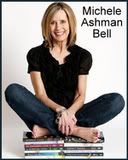
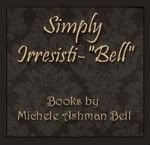





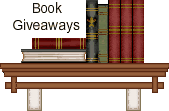
















































-page-001.jpg)












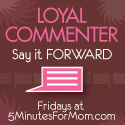
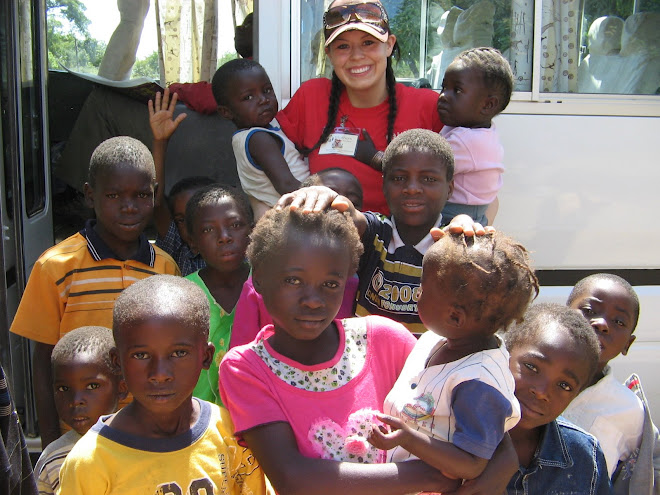
2 comments:
I loved, loved, loved Counting Costs. So well written. I loved the Spider Latham mysteries too and know I'll love the others, as soon as I can find them. Best of luck with the Whitney's, Liz, I was glad to see Counting Costs as a finalist. You're a class act.
Great interview! I learned several new things about Liz, and I was particularly interested in her method for outlining a book. I'm not an outliner...yet...but, since my next novel (after my work in progress) is historical, I may have to borrow some of her process.
I don't know how she does it all AND write so very well, but she's truly an inspiration!
Post a Comment